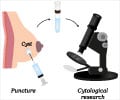Holistic Management of Stress and Fatigue
One of the most difficult parts of living with breast cancer therapies is fatigue. Most women with breast cancer reported that fatigue persists even after the chemo or radiation therapy is over. This tiredness can cause a lot of physical pain as well as stress and cognitive problems. One of the methods to bust this fatigue is to get good sleep. Even a nap could revive and refresh you. A University of California study found that an afternoon nap could boost cognitive power and refresh the napper. Other than napping, most holistic management interventions should be done under the supervision or guidance of experts.
Cognitive-Behavioral Stress Management (CBSM) for breast cancer treatment is a program that combines stress management with relaxation training and involves muscle relaxation, imagery, meditation, and building skills such as coping strategies, cognitive power, and strong social networking. A study suggests that cognitive-behavioral stress management intervention reduced moderate depression and increased generalized optimism in the breast cancer patients. This remained significantly elevated at a 3-month follow up of the intervention.
Another study found that CBSM intervention reduced serum cortisol levels in women treated for stage I and II breast cancer. Cortisol is a stress hormone that decreases the activity of the immune cells that fight breast cancer. So, the less cortisol in your body, the better your body can fight cancer.
Holistic mind-body therapies like yoga and tai chi are similar in their effect to CBSM intervention. In a Swedish study where cognitive behavioral therapy was compared with kundalini yoga, the results indicated that both psychological variables (stress behavior, anger, fatigue) and physiological variables (blood pressure, heart rate, salivary cortisol) showed significant improvements. The researchers didn’t find any significant difference between the two therapies.
Yoga has many benefits mentioned as follows.
- relieves chronic stress and fatigue
- boosts immune system
- regulates endocrine system
- provides flexibility to the body
- relaxes the muscles
- releases free flow of energy in the body
- calms the mind thus reducing fear and anxiety
Suryanamaskar includes a set of 12 dynamic exercises that helps exercise various organs of the body and the pranayama part of the Suryanamaskar ensures free flow of oxygen and energy in the body making you physically and mentally de-stressed and fresh. In addition, it provides all the benefits mentioned above. Apart from Suryanamaskar, there are other specific asanas for each individual with breast cancer. Do not attempt yoga asanas soon after the surgery. Give it some time before restarting yoga practice. You need to seek out a qualified yoga teacher who has worked with breast cancer patients because an inexperienced instructor can increase the risk for injuries.
Meditation, also a component of yoga, may be useful as a way to relax the body and de-stress. Guided meditation is a type of meditation in which you form mental images of places or situations you find relaxing. Mindfulness meditation is based on acceptance of living in the present moment where you focus on your breathing and observe your thoughts and emotions without being judgmental. Transcendental meditation is a type of mantra meditation in which you achieve a deep state of relaxation. A single blind, randomized controlled trial has shown that transcendental meditation could significantly reduce stress and improve the quality of life in older women with stage II to stage IV breast cancer.
Tai Chi is yet another mind-body therapy that has shown potential to help women fight the side effects of breast cancer by improving quality of life and functional capacity. For example, a U.S. study published in the Medicine and Sport Science journal revealed that one hour of Tai Chi thrice a week for 12 weeks exhibited significant improvements in quality of life as well as aerobic capacity, muscular strength and flexibility. Most practitioners of this traditional Chinese exercise who have breast cancer feel that it has helped them have a positive attitude and made their recovery faster. However, you need to consult your physician before beginning Tai Chi.
Music therapy has been used as healing tool for centuries. The therapy may involve listening to music, or performing music, or writing songs, or even discussing lyrics with or without help from music therapist. It is said to influence physical, emotional, and cognitive well being and improve quality of life in women with breast cancer. According to the American Cancer Society, music therapy when used along with conventional treatment can help reduce pain, anxiety and relieve chemotherapy induced nausea and vomiting. It also relieves stress and provides an overall sense of well-being in the cancer patients. The Natural Standard Monograph has given an A-grade (strong scientific evidence for use) to Music therapy for mood enhancement, relaxation, stress and anxiety. A study published in the Journal of the Society for Integrative Oncology suggests that music therapy consisting of three individual sessions led by a music therapist showed significant immediate effects as regards relaxation, comfort, and happiness in women with metastatic breast cancer.
However, music therapy is not recommended in those who do not like music therapy because this might have a reverse effect and may result in agitation or more stress. Again, the music should reflect your personal preference to have the desired effect. Lastly, do not listen to music at high volume, it may damage the ears and lead to hearing loss.



















Breast cancer can be earlier detected with mammograms. That's why it is really important to have yourself checked when you are already in your 40s or if you have a high risk for cancer [family history].